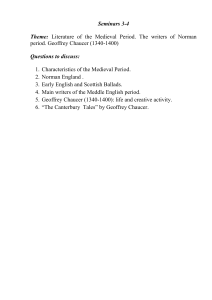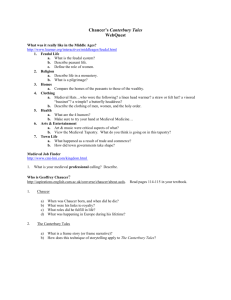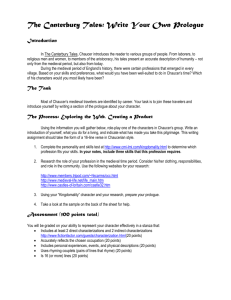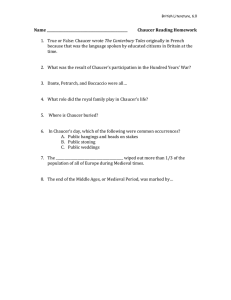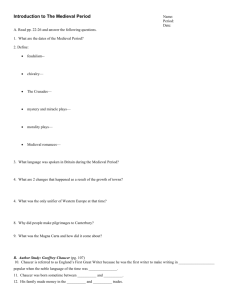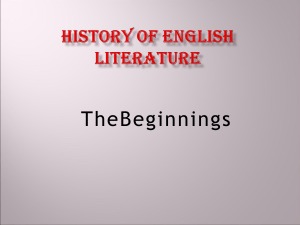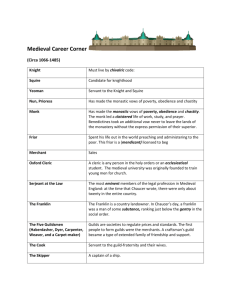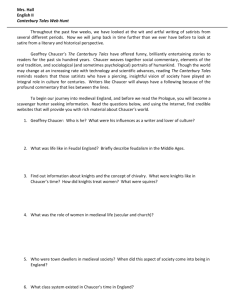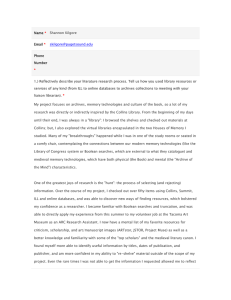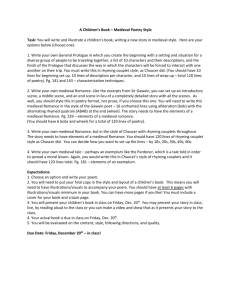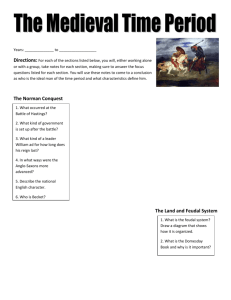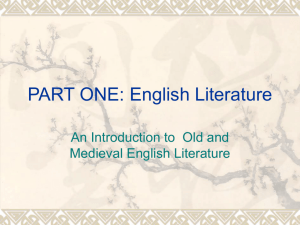ENG 310/800
advertisement
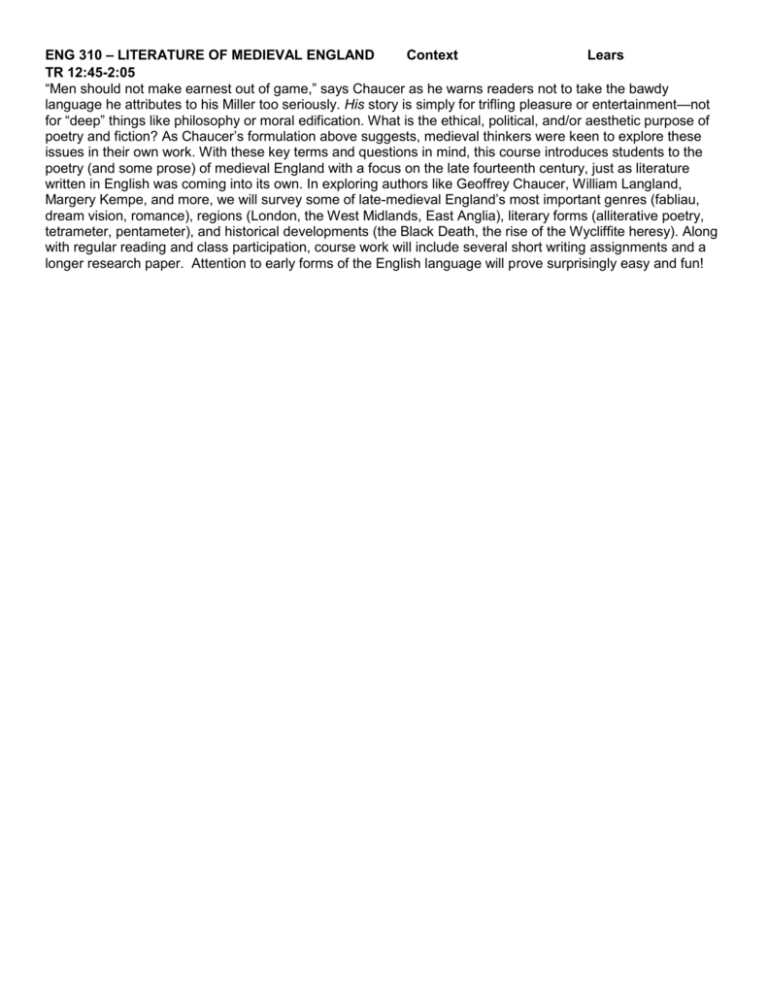
ENG 310 – LITERATURE OF MEDIEVAL ENGLAND Context Lears TR 12:45-2:05 “Men should not make earnest out of game,” says Chaucer as he warns readers not to take the bawdy language he attributes to his Miller too seriously. His story is simply for trifling pleasure or entertainment—not for “deep” things like philosophy or moral edification. What is the ethical, political, and/or aesthetic purpose of poetry and fiction? As Chaucer’s formulation above suggests, medieval thinkers were keen to explore these issues in their own work. With these key terms and questions in mind, this course introduces students to the poetry (and some prose) of medieval England with a focus on the late fourteenth century, just as literature written in English was coming into its own. In exploring authors like Geoffrey Chaucer, William Langland, Margery Kempe, and more, we will survey some of late-medieval England’s most important genres (fabliau, dream vision, romance), regions (London, the West Midlands, East Anglia), literary forms (alliterative poetry, tetrameter, pentameter), and historical developments (the Black Death, the rise of the Wycliffite heresy). Along with regular reading and class participation, course work will include several short writing assignments and a longer research paper. Attention to early forms of the English language will prove surprisingly easy and fun!
